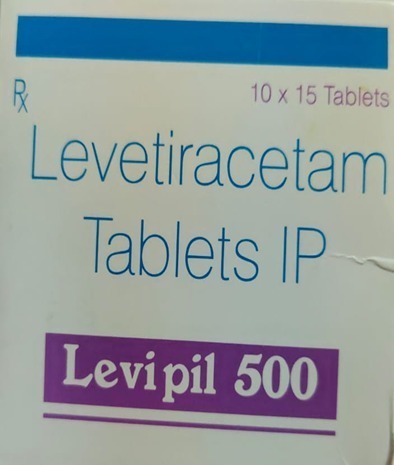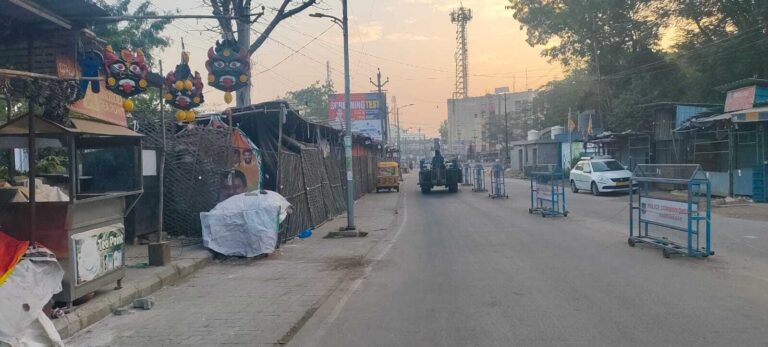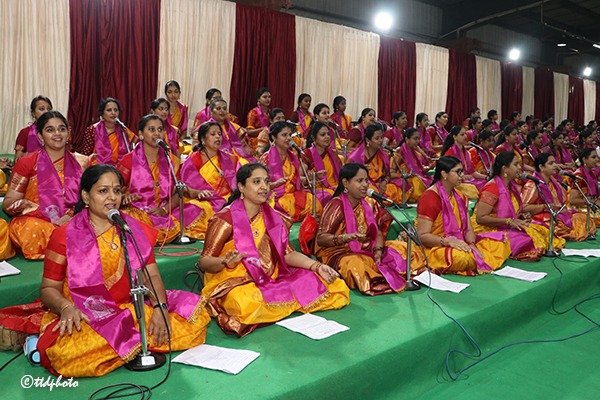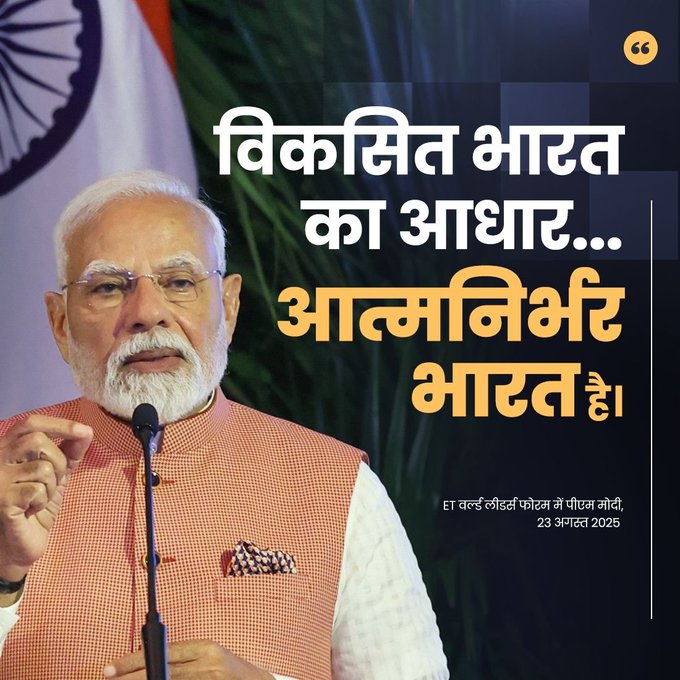
India, with its resilience and strength, stands as a beacon of hope for the world: PM
Prime Minister Narendra Modi addresses the Economic Times World Leaders Forum in New Delhi
Our Government is infusing new energy into India’s space sector: PM
We are moving ahead with the goal of a quantum jump, not just incremental change: PM
For us, reforms are neither a compulsion nor crisis-driven, but a matter of commitment and conviction: PM
It is not in my nature to be satisfied with what has already been achieved. The same approach guides our reforms: PM
A major reform is underway in GST, set to be completed by this Diwali, making GST simpler and bringing down prices: PM
A Viksit Bharat rests on the foundation of an Aatmanirbhar Bharat: PM
NEW DELHI, AUGUST 24, 2025: Prime Minister Narendra Modi addressed the Economic Times World Leaders Forum in New Delhi on Saturday evening.
Speaking on the occasion, he said that extensive discussions have taken place at the forum on global circumstances and geo-economics and emphasised that when viewed in the global context, one can sense the strength of India’s economy. He highlighted that India is currently the fastest-growing major economy in the world, and soon, India is poised to become the third-largest economy globally.
Mr Modi cited expert assessments indicating that India’s contribution to global growth is expected to reach nearly 20 per cent in the near future. He attributed India’s growth and economic resilience to the macroeconomic stability achieved over the past decade. The Prime Minister shared that India’s fiscal deficit is estimated to decline to 4.4 per cent, despite the severe challenges posed by the COVID-19 pandemic. He added that Indian companies are raising record funds from capital markets, while Indian banks are stronger than ever before, and inflation is very low, and interest rates are also low. Underlining that India’s current account deficit is under control and forex reserves are robust, Shri Modi further highlighted that every month, lakhs of domestic investors are investing thousands of crores of rupees into the market through Systematic Investment Plans (SIPs).
The Prime Minister emphasised that when the fundamentals of an economy are strong, its foundation is solid, then the impact is visible across all sectors. He recalled that he had discussed this in detail during his address on 15th August, and while he would not repeat those points, he stressed that the developments around and after Independence Day exemplify India’s growth story. Shri Modi also highlighted that the latest data shows 22 lakh formal jobs were added to the EPFO database in the month of June 2025 alone—marking the highest ever for any single month. He noted that India’s retail inflation is at its lowest level since 2017, adding that India’s foreign exchange reserves have reached an all-time high. The Prime Minister shared that in 2014, India’s Solar PV Module Manufacturing Capacity was approximately 2.5 GW, and the latest figures show that this capacity has now reached the historic milestone of 100 GW. He further stated that Delhi Airport has joined the elite Hundred-Million-Plus Club of global airports, with its annual passenger handling capacity now exceeding 100 million, placing it among only six airports worldwide in this exclusive group.
Underlining that a recent development has drawn significant attention—S&P Global Ratings has upgraded India’s credit rating, the Prime Minister emphasised that such an upgrade has occurred after nearly two decades. “India, through its resilience and strength, continues to be a source of global confidence”, said Shri Modi.
Referring to a commonly used phrase—“Missing the Bus”—to illustrate how opportunities, if not seized, can pass by, Mr Modi remarked that previous governments in India missed several such buses of opportunity in the fields of technology and industry. Adding that he was not present to criticise anyone, Shri Modi emphasised that, however, in a democracy, comparative analysis often helps clarify the situation more effectively.
The Prime Minister stated that earlier governments kept the nation entangled in vote-bank politics and lacked the vision to think beyond elections. He remarked that those governments believed that developing cutting-edge technology was the domain of advanced nations, and that India could simply import it when needed. Emphasising that this mindset caused India to lag behind many countries for years, repeatedly missing critical opportunities—missing the bus, he cited the communication sector as an example, noting that when the internet era began globally, the government at the time was indecisive. He added that during the 2G era, the events that unfolded are well known to all, and India missed that bus too. He highlighted that India remained dependent on foreign nations for 2G, 3G, and 4G technologies.
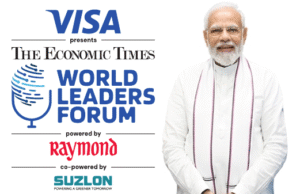
Mentioning that India could have begun semiconductor manufacturing 50–60 years ago, Shri Modi remarked that India missed that bus as well, and continued to do so for many years. He affirmed that this situation has now changed and semiconductor-related factories have started coming up in India. He further stated that by the end of this year, the first Made-in-India chip will be available in the market.
Extending greetings to all on the occasion of National Space Day and addressing developments in India’s space sector, the Prime Minister stated that prior to 2014, India’s space missions were limited in number and scope. He emphasized that in the 21st century, when every major nation is exploring space opportunities, India could not afford to lag behind. Shri Modi highlighted that reforms were introduced in the space sector and it was opened to private sector participation. He shared that from 1979 to 2014, India conducted only forty-two space missions over thirty-five years. He noted with pride that in the last eleven years, India has completed more than sixty missions. The Prime Minister stated that many more missions are lined up in the coming period. He announced that India has achieved space docking capability this year, calling it a major milestone for future missions. He further stated that India is preparing to send its astronauts to space under the Gaganyaan Mission, acknowledging that Group Captain Shubanshu Shukla’s experience will be of great assistance in this endeavor.
“To infuse new energy into the space sector, it was essential to free it from all constraints”, stated Shri Modi highlighting that for the first time, clear rules were established for private participation in the space domain. The Prime Minister remarked that spectrum allocation was made transparent for the first time while foreign investment in the space sector was liberalized for the first time. He further announced that this year’s budget includes a ₹1,000 crore Venture Capital Fund dedicated to space startups.
“India’s space sector is now witnessing the success of the reforms undertaken. In 2014, India had only one space start-up, whereas today there are over 300”, stated the Prime Minister affirming that the day is not far when India will have its own space station in orbit.
“India is not aiming for incremental change, but is moving forward with the goal of achieving quantum jumps”, emphasised the Prime Minister stressing that reforms in India are neither driven by compulsion nor by crisis. He affirmed that reforms are a reflection of India’s commitment and conviction. Underlining that the government adopts a holistic approach by conducting in-depth reviews of individual sectors, Shri Modi added that reforms are then implemented one by one within those sectors.
Mentioning that the recently concluded Monsoon Session of Parliament reflects the continuity of reforms, the Prime Minister emphasized that despite numerous disruptions by the opposition, the government remained fully committed to advancing reforms. He highlighted the Jan Vishwas 2.0 initiative as a major reform linked to trust-based and pro-people governance, recalling that under the first edition of Jan Vishwas, around 200 minor offences were decriminalized. He further announced that in the second edition, over 300 minor offences have now been decriminalized. Shri Modi further stated that the Income Tax law, which had remained unchanged for 60 years, has also been reformed in this session, noting that the law has now been simplified significantly. Pointing out that earlier, the language of the law was such that only lawyers or chartered accountants could understand it properly, Shri Modi said, “Now, the Income Tax Bill has been drafted in a language accessible to the common taxpayer. This reflects the government’s deep sensitivity towards the interests of citizens.”
Talking about the recent Monsoon Session in which significant amendments were made to laws related to mining, Shri Modi highlighted that laws governing shipping and ports—dating back to the colonial era—were also revised. He emphasized that these reforms will strengthen India’s blue economy and promote port-led development. The Prime Minister further noted that new reforms have been introduced in the sports sector as well. He stated that India is being prepared to host major international events and that a comprehensive sports economy ecosystem is being developed. He announced that the government has introduced a new National Sports Policy—Khelo Bharat Niti—to support this vision.
“It is not in my nature to be satisfied with goals already achieved. Same approach applies to reforms, and the government is determined to move further ahead”, exclaimed the Prime Minister, highlighting that a comprehensive arsenal of reforms is being prepared. He informed that work is underway on multiple fronts to advance this agenda. The Prime Minister outlined key actions being taken like the Repealing of the Unnecessary laws, Simplification of the Rules and procedures. He further added that procedures and approvals were being digitized, while several provisions were being decriminalized. “A major reform is being undertaken in the GST framework and this process will be completed by Diwali”, announced Shri Modi affirming that the GST system will become simpler and prices will come down.
The Prime Minister stated that this arsenal of next-generation reforms will lead to an increase in manufacturing across India. He remarked that market demand will rise and industries will gain new energy. Shri Modi highlighted that new employment opportunities will be created, affirming that both Ease of Living and Ease of Doing Business will improve as a result of these reforms.

